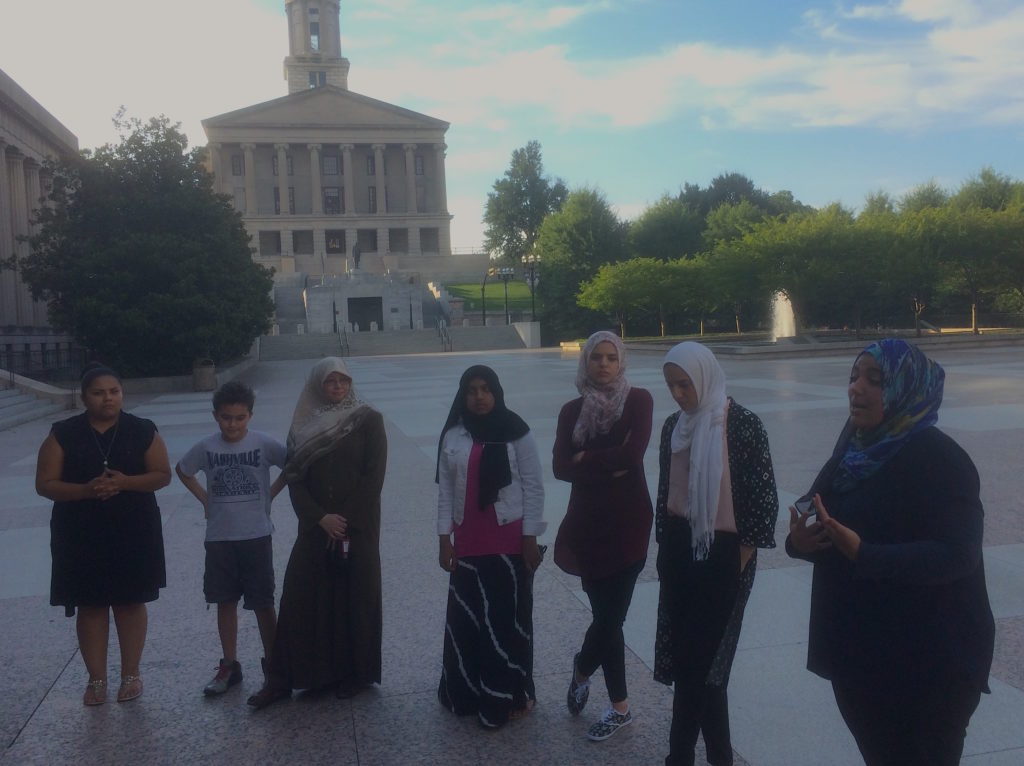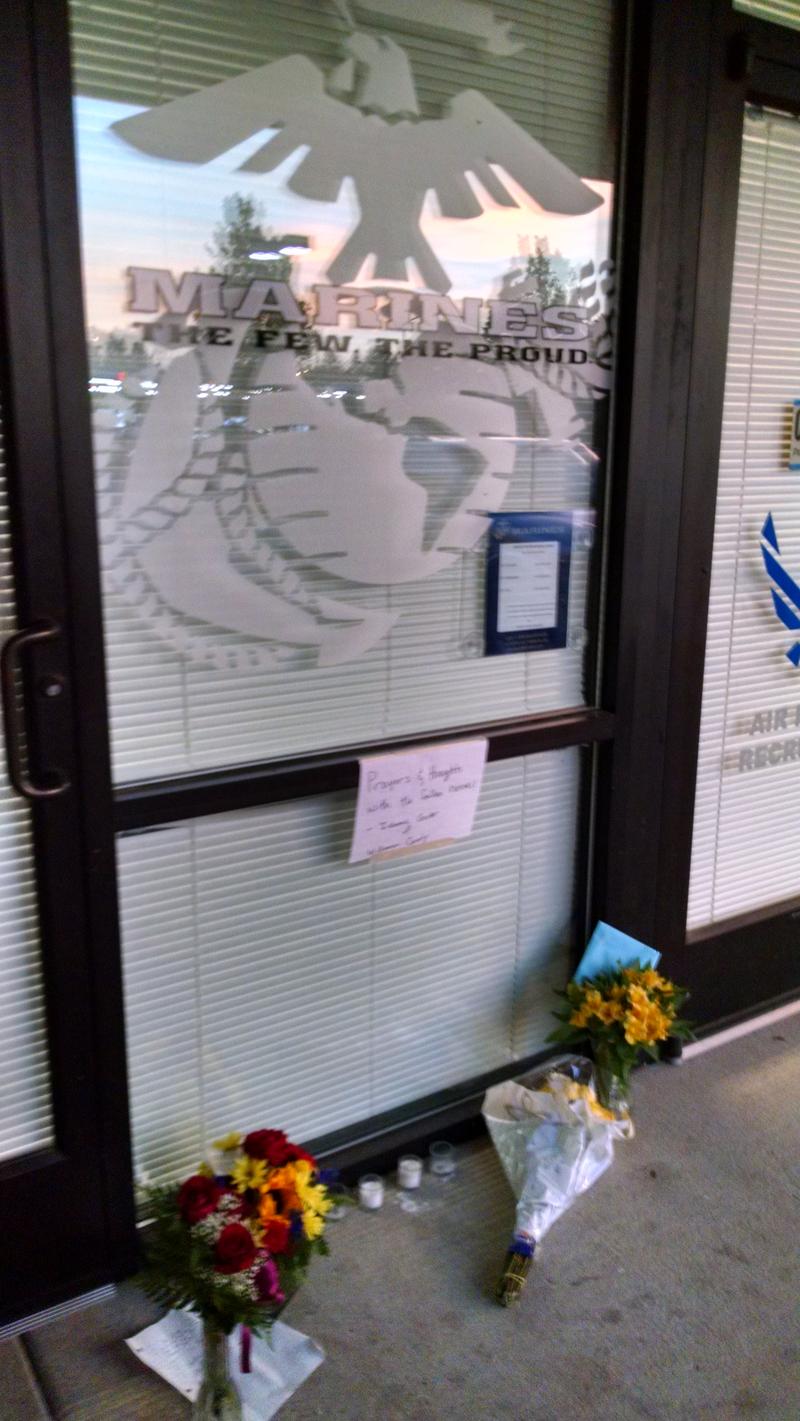
Yusuf Dada greets me at the back door to the Islamic Center of Williamson County just before Saturday’s evening prayer.
About a dozen men and women mill about talking quietly in an open room lined with long prayer rugs. A banner hangs on a wall advertising a mosque picnic. The word “canceled” has been scrawled over it.
It doesn’t take long for Dada to ask if I’ve seen it — the memorial out front.
“Members of our community organized this,” he says. “It’s a commemoration to share their sorrow.”
Votive candles and bouquets sit neatly beneath a window stenciled with the Marine Corps logo and its slogan, “The Few. The Proud.” A handwritten note begins simply, “Prayers and thoughts.”
For four years, the Islamic center has been wedged into this generic Cool Springs strip mall. On one side of the mosque is a martial arts studio. On the other, a Marine recruitment center.

“So, the Marines here are our neighbors. And they serve our country,” Dada says.
“We were appalled that another individual could take such a drastic action to, let alone hurt, but to kill another human being, which we consider very contrary to the beliefs of our faith.”
The
killing of five service members last week in Chattanooga by a Muslim shooter
cast a shadow on what was to be a celebratory weekend. The festival of Eid
Al-Fitr,
marking the end of Ramadan fasting, is a time when Muslims trade gifts and sweets,
eat big meals and throw carnivals — a kind of Christmas, Thanksgiving and Fat Tuesday rolled into one.
Instead, Muslims organized prayers and vigils to honor the Marines and sailor who were shot to death in their recruiting offices.
The shooting itself was a shock, says Khadija Ali Amghaiab. But the Belmont University sophomore says so was the shooter’s identity.
Muhammad Youssef
Abdulazeez
was close to her own social circle. Some in the mosque had met him; one of her friends had even been at the same wedding as him.
“It just— It felt very surreal and really just strange and saddening.”
Her bewilderment is shared by Mohamed Farook
. The India-born IT consultant has lived in Nashville for 15 years.
He moved here from California, ignoring friends’ warnings that he wouldn’t be accepted in Tennessee. Instead, he found a welcoming community, where even non-Muslims support him as he makes time to fast and pray.

“I bought my house here. I got married. Both of my children were born right here in Williamson.
“It was a two-month gig because it was a two-month project and I’d get back home. But I’ve made it home. …
And I’ve been very comfortable living here.” His voice drops to whisper. “So, it’s surprising, when people like this do stuff like this. Which is really not what it’s all about.”
Farook
says practicing Islam brings him a sense of peace. It’s that peace he had hoped to share this Eid
.
Small vigil at the Tennessee State Capitol
A day later, a handful of Muslims turned out at the Tennessee State Capitol for an early evening vigil.
Mohammed Shajiuddin, a pharmacist in Nashville, said it was important to make a public appearance. He and others circled up in front of the Capitol, where flags remain at half staff.
“Being a Muslim, I really condemn whatever has happened. It is not what Islam or my religion teaches.”
The family of the young Muslim man responsible for the shootings
has released a statement, saying he is not the son they “knew and loved.” While sending their condolences, the family also says he suffered from depression for “many years.”
Drost
Kokoye
says many who practice Islam fear reprisal attacks, since it was a Muslim who shot up the recruiting stations.
“This feeling is unfortunately familiar for our community, and the immediate reaction is to duck and cover. And I think even with the small group of people that are out here today, we want to change that.”


